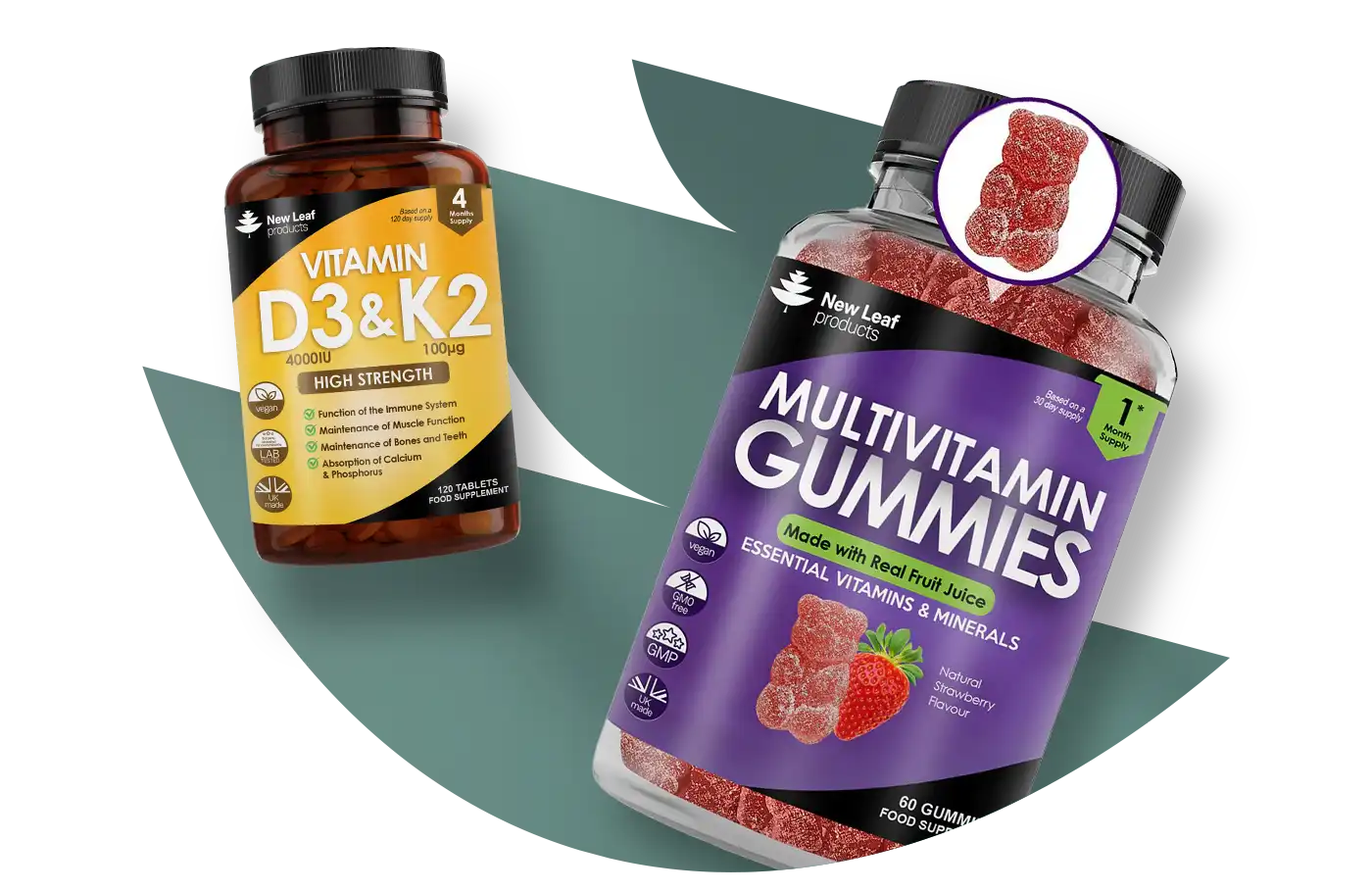
High cholesterol is an extremely common health condition which increases the risk of heart disease, one of the leading causes of death worldwide. There are several unhealthy lifestyle habits that contribute to high cholesterol, but women are at particular risk once they enter menopause due to a drop in oestrogen.
In this article, we provide an overview of what cholesterol is, what the risk factors are and how you can help maintain healthy cholesterol levels by taking dietary supplements.
What is cholesterol anyway?
Cholesterol is a fatty substance called a lipid. It is produced in the liver or consumed in the food that you eat and is crucial for building cell membranes, hormones and vitamin D. While some cholesterol is necessary for the normal function of the body, too much of a certain type of cholesterol, known as low-density lipoprotein (LDL) is harmful to our health.
Cholesterol is transported throughout the body in the blood by combining with particular proteins. Once combined they form what’s known as a lipoprotein, of which there are two types:
High-density lipoprotein (HDL)
Is referred to as “good” cholesterol as it transports cholesterol away from cells back to the liver, where it is broken down and eliminated from the body as waste. High levels of HDL are not harmful and are actually beneficial.

Low-density lipoprotein (LDL)
Delivers cholesterol to cells but is referred to as “bad” cholesterol because if there is too much of it, fatty deposits build up in the arteries resulting in blockages and hardening. This increases the risk of heart attacks, strokes, and heart disease.

What causes high cholesterol?
Anyone can get high cholesterol, even skinny people. Sometimes it is inherited, but there are also several lifestyle factors that increase your risk including:
Being overweight
An unhealthy diet and eating too much saturated fat
A sedentary lifestyle
Smoking
Diabetes
Drinking more alcohol than recommended
A genetic condition called familial hypercholesterolaemia.

Why does cholesterol affect women differently?
The female sex hormone oestrogen plays an important role in regulating cholesterol levels because it increases the amount of HDL cholesterol and lowers the amount of LDL cholesterol. This explains why women often have a better lipid profile than men during their childbearing years.
However, during and after menopause, when oestrogen levels begin to decline, LDL and total cholesterol levels often increase, putting menopausal women at greater risk for cardiovascular complications like heart disease and stroke. As such, it is even more important for women at this stage in their life to try to keep their cholesterol as low as possible.
Two supplements that help lower cholesterol
Taking a daily nutritional supplement alongside making some healthy lifestyle changes can help keep your cholesterol levels healthy through the menopause.
Psyllium husk is a type of fibre which comes from the seeds of the Plantago ovata plant and is proven to help reduce cholesterol. It works by binding to fat and bile acids produced by the liver, forming a gel-like substance that helps the body excrete them. Cholesterol is a key substance that the liver must use in order to replace these lost bile acids, which contributes to an overall reduction in cholesterol.
Cod liver oil is another supplement that has powerful cholesterol-reducing capabilities, thanks to its high omega-3 fatty acid content. According to research, omega-3s in fish oils boost levels of “good” cholesterol to increase the removal of “bad” cholesterol in the blood, helping prevent artery blockages or hardening.
Summary
Cholesterol is a fatty substance that is necessary for several bodily processes. There are two main types: HDL (good) and LDL (bad). Too much LDL can lead to blocked arteries and causes them to harden, which increases the risk for other cardiovascular complications like heart attacks and heart disease.
Unhealthy lifestyle habits like smoking, eating too much saturated fats and not getting enough exercise increase the risk for high cholesterol. Levels of LDL cholesterol also increase in women during and after menopause due to declining oestrogen levels, a hormone that is important for regulating cholesterol.
Taking a dietary supplement like psyllium husk and cod liver oil can help reduce high cholesterol in women and lower the risk of associated complications.



